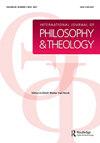在佛教和基督教之间:道德的改变,观念的丧失/恢复,无私
IF 0.3
0 PHILOSOPHY
International Journal of Philosophy and Theology
Pub Date : 2022-05-27
DOI:10.1080/21692327.2022.2129744
引用次数: 1
摘要
摘要本文论述了默多克与佛教的哲学关系。首先,我们认为默多克不是,也没有表明自己是佛教徒。然后,我们建议对默多克对佛教的解读保持谨慎。一方面,她运用了她那个时代的有限观点。另一方面,她的方法是基于对佛教与胡塞尔和萨特对意识的分析之间的密切关系的见解,以及柏拉图关于无私和自我净化的思想。默多克对佛教的思考主要是关于宗教在我们道德生活中的作用的复杂争论,因为这些思考反映了快速变化的西方文化环境。她设想了基督教向佛教学习的可能性,并朝着去神话化和对此时此地其他人的激进、爱的承诺迈进。虽然默多克的观察作为“对我们时代的诊断”可能并不准确,但它们为用建议的术语反思我们的生活提供了一个宝贵的机会。他们乐观地认为,有可能向其他人(其他文化、其他宗教)学习,让自己变得更好。我们现实的“混乱”本质并没有阻碍这种学习的可能性;它只会使其特定的步骤变得不可预测。本文章由计算机程序翻译,如有差异,请以英文原文为准。
Iris Murdoch between buddhism and christianity: moral change, conceptual loss/recovery, unselfing
ABSTRACT The article discusses Iris Murdoch’s philosophical relationship to Buddhism. First, we argue that Murdoch was not, and did not identify herself as, a Buddhist. Then we suggest caution regarding Murdoch’s interpretations of Buddhism. On the one hand, she applies the limited viewpoint of her era. On the other hand, her approach is motivated by insights tracing affinities between Buddhism and Husserl’s and Sartre’s analyses of consciousness, as well as Platonic ideas of unselfing and self-purification. Murdoch’s reflections on Buddhism serve primarily a complex argument about the role of religion in our moral lives, as these reflect the rapidly changing Western cultural environment. She envisages the possibility for Christianity to learn from Buddhism and move closer towards demythologisation and a radical, loving commitment to the others here and now. While Murdoch’s observations may not be accurate as a ‘diagnosis of our times’, they serve as a valuable opening for reflecting on our lives in the suggested terms. They are also inspiring in their optimism that there is the possibility to learn from others (other cultures, other religions) for the better. The ‘muddled’ nature of our reality does not thwart this possibility of learning; it only makes its particular steps unpredictable.
求助全文
通过发布文献求助,成功后即可免费获取论文全文。
去求助
来源期刊

International Journal of Philosophy and Theology
PHILOSOPHY-
CiteScore
0.30
自引率
0.00%
发文量
12
期刊介绍:
International Journal of Philosophy and Theology publishes scholarly articles and reviews that concern the intersection between philosophy and theology. It aims to stimulate the creative discussion between various traditions, for example the analytical and the continental traditions. Articles should exhibit high-level scholarship but should be readable for those coming from other philosophical traditions. Fields of interest are: philosophy, especially philosophy of religion, metaphysics, and philosophical ethics, and systematic theology, for example fundamental theology, dogmatic and moral theology. Contributions focusing on the history of these disciplines are also welcome, especially when they are relevant to contemporary discussions.
 求助内容:
求助内容: 应助结果提醒方式:
应助结果提醒方式:


